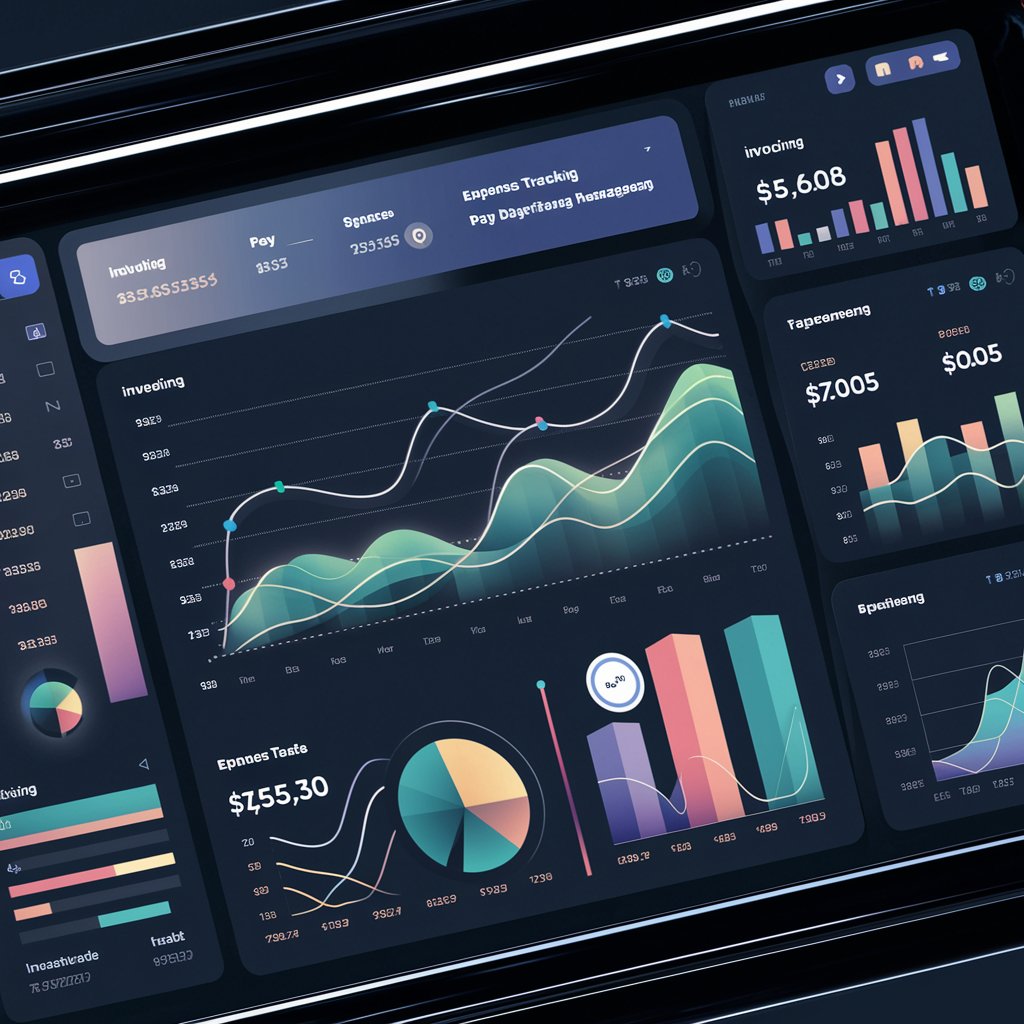Choosing the right accounting software is a crucial decision for any small business owner. The right software can streamline your financial processes, improve accuracy, and save valuable time. However, with a plethora of options available, selecting the best fit for your business can be overwhelming. This guide will walk you through the essential factors to consider and provide practical tips to help you make an informed decision.
Understanding Your Business Needs
Assess Your Current Accounting Processes
Before selecting accounting software, it’s essential to understand your current accounting processes and identify areas for improvement. Consider the following:
- Current Pain Points: Identify the challenges you face with your existing system, such as manual data entry, errors, or time-consuming processes.
- Essential Features: Determine the features you need, such as invoicing, expense tracking, payroll management, and financial reporting.
- Volume of Transactions: Consider the volume of transactions your business handles, as some software solutions are better suited for high-volume operations.
- Industry-Specific Needs: Some industries have unique accounting requirements. Ensure the software you choose can cater to these specific needs.
Set Your Budget
Accounting software comes in various price ranges, from free options to premium solutions with extensive features. Determine your budget and consider both upfront costs and ongoing subscription fees. Keep in mind that investing in a reliable accounting solution can save you money in the long run by improving efficiency and reducing errors.
Key Features to Look for in Accounting Software
Ease of Use
The software should be user-friendly and intuitive, even for those with limited accounting knowledge. A complicated interface can lead to errors and wasted time. Look for software with:
- Simple Navigation: Easy-to-understand menus and options.
- Clear Instructions: Helpful tutorials, guides, and customer support.
- Customizable Dashboards: Personalized dashboards that provide quick access to essential functions.
Core Accounting Functions
Ensure the software includes the core accounting functions your business needs:
- Invoicing: Create, send, and track invoices.
- Expense Tracking: Record and categorize expenses.
- Bank Reconciliation: Automatically reconcile bank statements with your accounting records.
- Financial Reporting: Generate financial statements such as income statements, balance sheets, and cash flow statements.
Automation Features
Automation can save time and reduce errors. Look for software that offers:
- Automated Invoicing: Automatically send recurring invoices and payment reminders.
- Expense Automation: Automatically import and categorize expenses from bank and credit card transactions.
- Payroll Automation: Calculate wages, withhold taxes, and manage benefits.
Scalability
Choose software that can grow with your business. As your business expands, your accounting needs will become more complex. Ensure the software can handle increased transaction volumes and additional features without significant upgrades or changes.
Integration Capabilities
Your accounting software should integrate seamlessly with other tools and systems you use, such as:
- Customer Relationship Management (CRM): Sync customer data for better invoicing and sales tracking.
- E-commerce Platforms: Integrate with your online store for automated sales tracking and inventory management.
- Payment Processors: Connect with payment gateways to streamline payment processing and reconciliation.

Security Features
Protecting your financial data is paramount. Ensure the software offers robust security features, including:
- Data Encryption: Encrypt data to protect it from unauthorized access.
- User Permissions: Control access levels for different users within your organization.
- Regular Backups: Automatic data backups to prevent loss in case of a system failure.
Evaluating Different Accounting Software Options
Popular Accounting Software Solutions
There are several well-known accounting software solutions that cater to small businesses. Some of the most popular include:
- QuickBooks: Known for its comprehensive features, ease of use, and strong customer support.
- Xero: Offers a user-friendly interface, robust integration options, and strong reporting capabilities.
- FreshBooks: Ideal for service-based businesses, with strong invoicing and time-tracking features.
- Wave: A free accounting software option with essential features for small businesses.
- Zoho Books: Provides a wide range of features and integrates seamlessly with other Zoho products.
Reading Reviews and Testimonials
Research reviews and testimonials from other small business owners who have used the software. Look for feedback on:
- Ease of Use: How easy it is to set up and use the software.
- Customer Support: The quality and responsiveness of customer support.
- Feature Satisfaction: Whether the software meets users’ needs and expectations.
- Reliability: The software’s performance and uptime.
Taking Advantage of Free Trials
Many accounting software providers offer free trials. Take advantage of these trials to:
- Test Functionality: Ensure the software meets your needs and is easy to use.
- Explore Features: Try out different features to see how they work in practice.
- Evaluate Integration: Test the integration with other tools and systems you use.

Implementation and Training
Setting Up Your Accounting Software
Once you’ve chosen the right accounting software, it’s essential to set it up correctly:
- Data Migration: Import existing financial data into the new system. Many software providers offer tools or services to assist with this process.
- Customizing Settings: Tailor the software settings to match your business’s needs, such as creating custom invoice templates or setting up tax rates.
- Connecting Accounts: Link your bank accounts, credit cards, and other financial accounts to the software.
Training Your Team
Ensure that everyone who will use the software receives adequate training:
- In-House Training: Conduct training sessions to familiarize your team with the software’s features and functionalities.
- Online Resources: Utilize online tutorials, webinars, and guides provided by the software vendor.
- Customer Support: Encourage your team to contact customer support with any questions or issues.
Ongoing Support and Updates
Accounting software should provide ongoing support and regular updates to improve functionality and security:
- Customer Support: Ensure the software vendor offers reliable customer support through multiple channels, such as phone, email, and live chat.
- Software Updates: Regularly update the software to access new features, improvements, and security patches.
Maximizing the Benefits of Your Accounting Software
Regularly Review Financial Reports
Use the software to generate and review financial reports regularly. Key reports to monitor include:
- Income Statement: Track revenue, expenses, and profitability.
- Balance Sheet: Review assets, liabilities, and equity.
- Cash Flow Statement: Monitor cash inflows and outflows to ensure healthy cash flow.

Streamline Processes with Automation
Leverage automation features to streamline your accounting processes:
- Recurring Invoices: Set up recurring invoices for regular customers to save time.
- Automated Expense Tracking: Use software to automatically import and categorize expenses.
- Payroll Automation: Automate payroll processing to ensure accuracy and timeliness.
Stay Compliant with Tax Regulations
Use the software’s tax features to stay compliant with tax regulations:
- Tax Calculations: Ensure accurate calculation of taxes owed.
- Tax Filing: Use software features to prepare and file tax returns.
- Record Keeping: Maintain organized records to simplify tax audits and compliance.
Integrate with Other Business Tools
Maximize the benefits of your accounting software by integrating it with other business tools:
- CRM Integration: Sync customer data to improve invoicing and sales tracking.
- E-commerce Integration: Connect with your online store for automated sales tracking and inventory management.
- Payment Processor Integration: Streamline payment processing and reconciliation by integrating with payment gateways.
Conclusion
Choosing the right accounting software for your small business is a critical decision that can significantly impact your financial management efficiency and accuracy. By understanding your business needs, evaluating key features, and thoroughly testing different options, you can select the best software to meet your requirements.
Investing in user-friendly, feature-rich, and scalable accounting software will streamline your financial processes, reduce errors, and provide valuable insights into your business’s financial health. With the right software in place, you can focus on growing your business and achieving long-term success.
